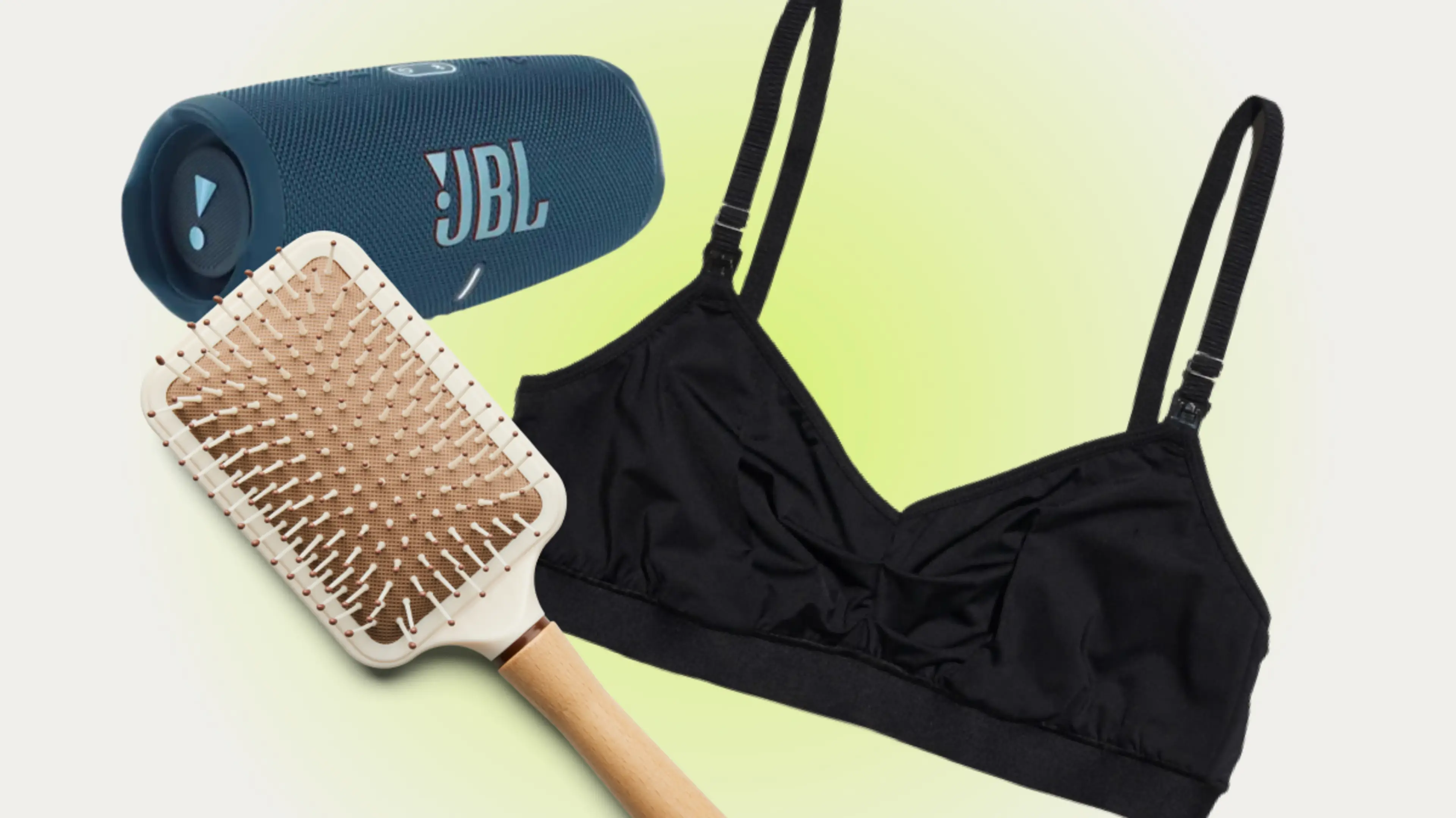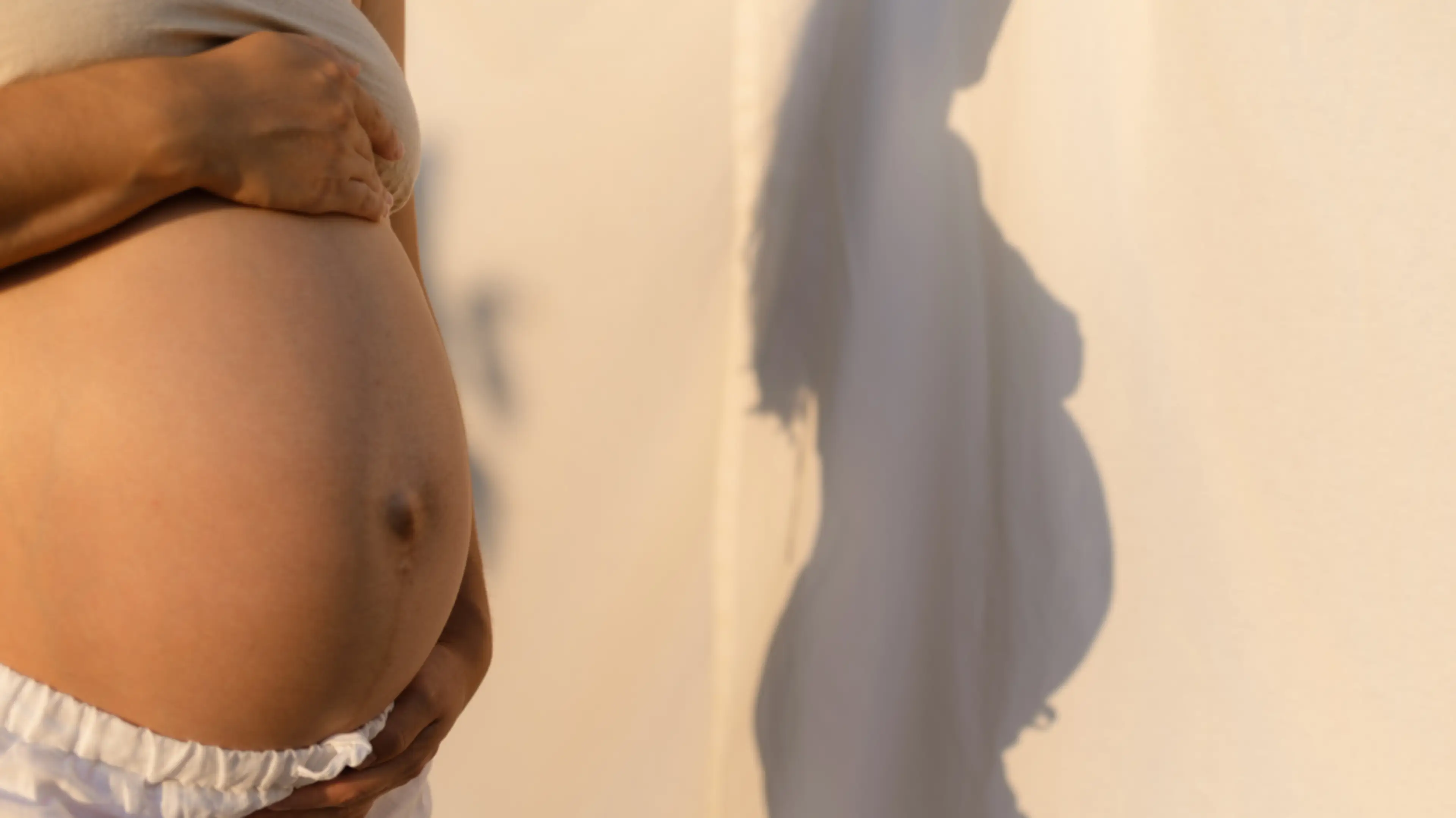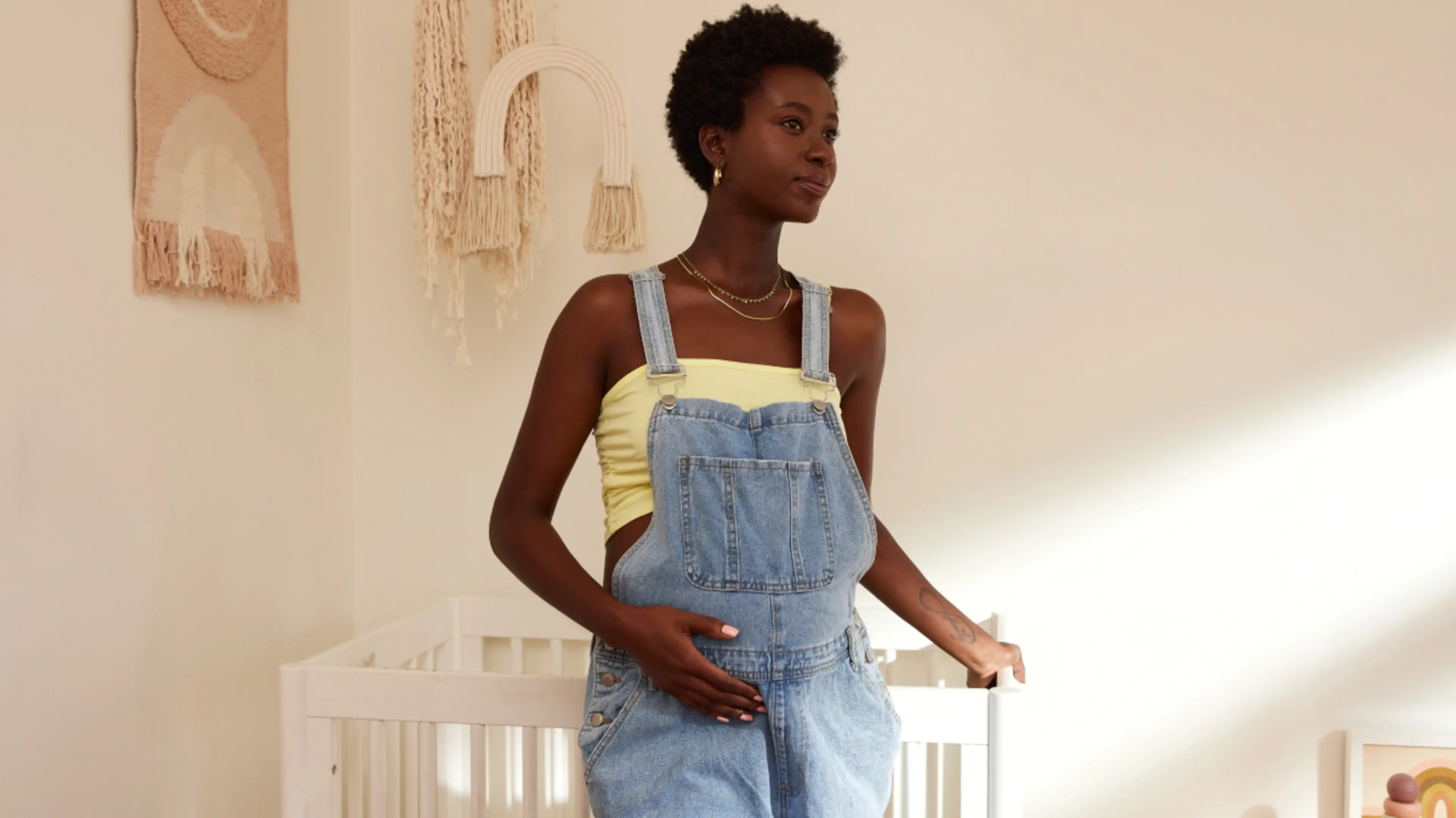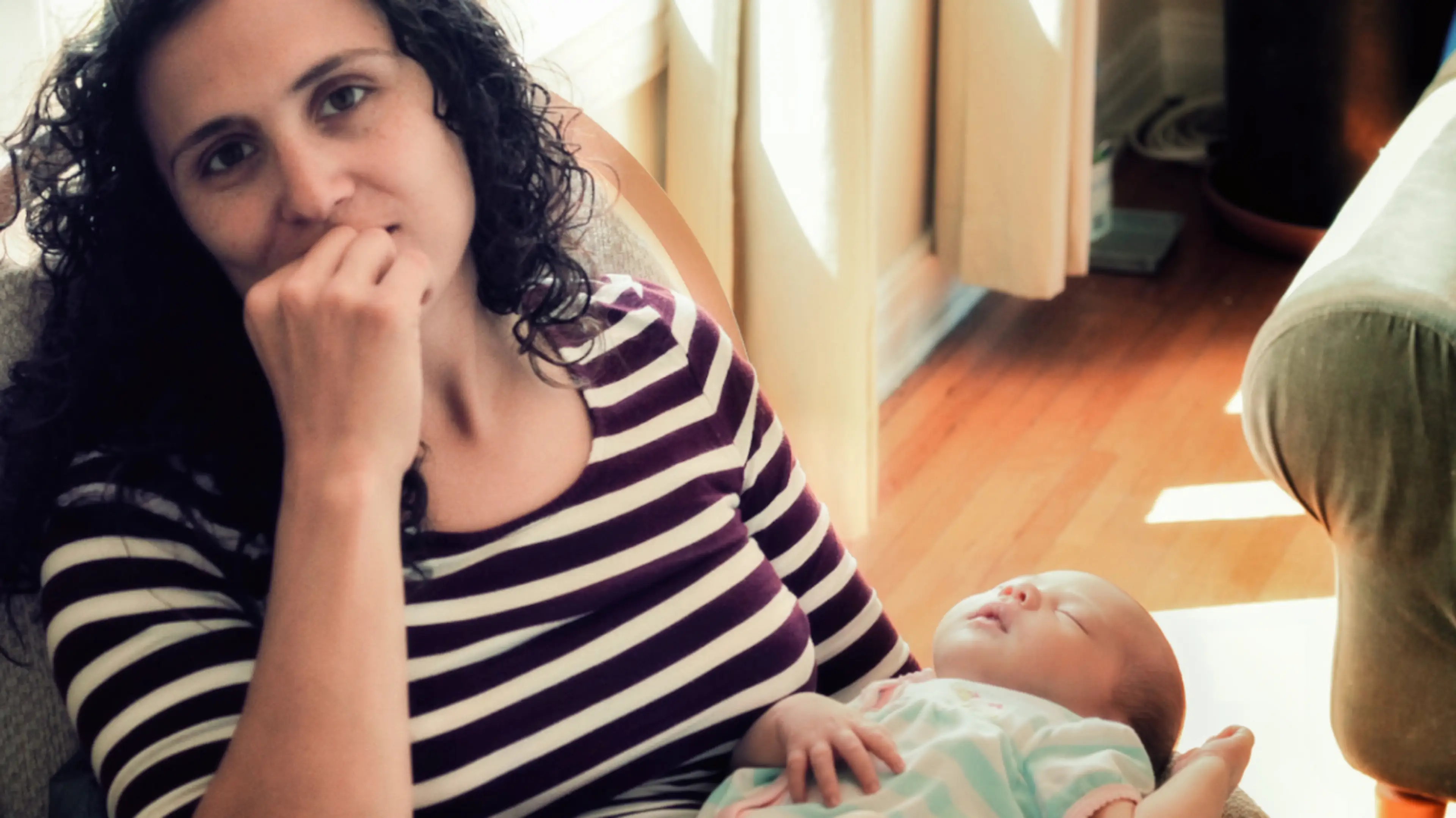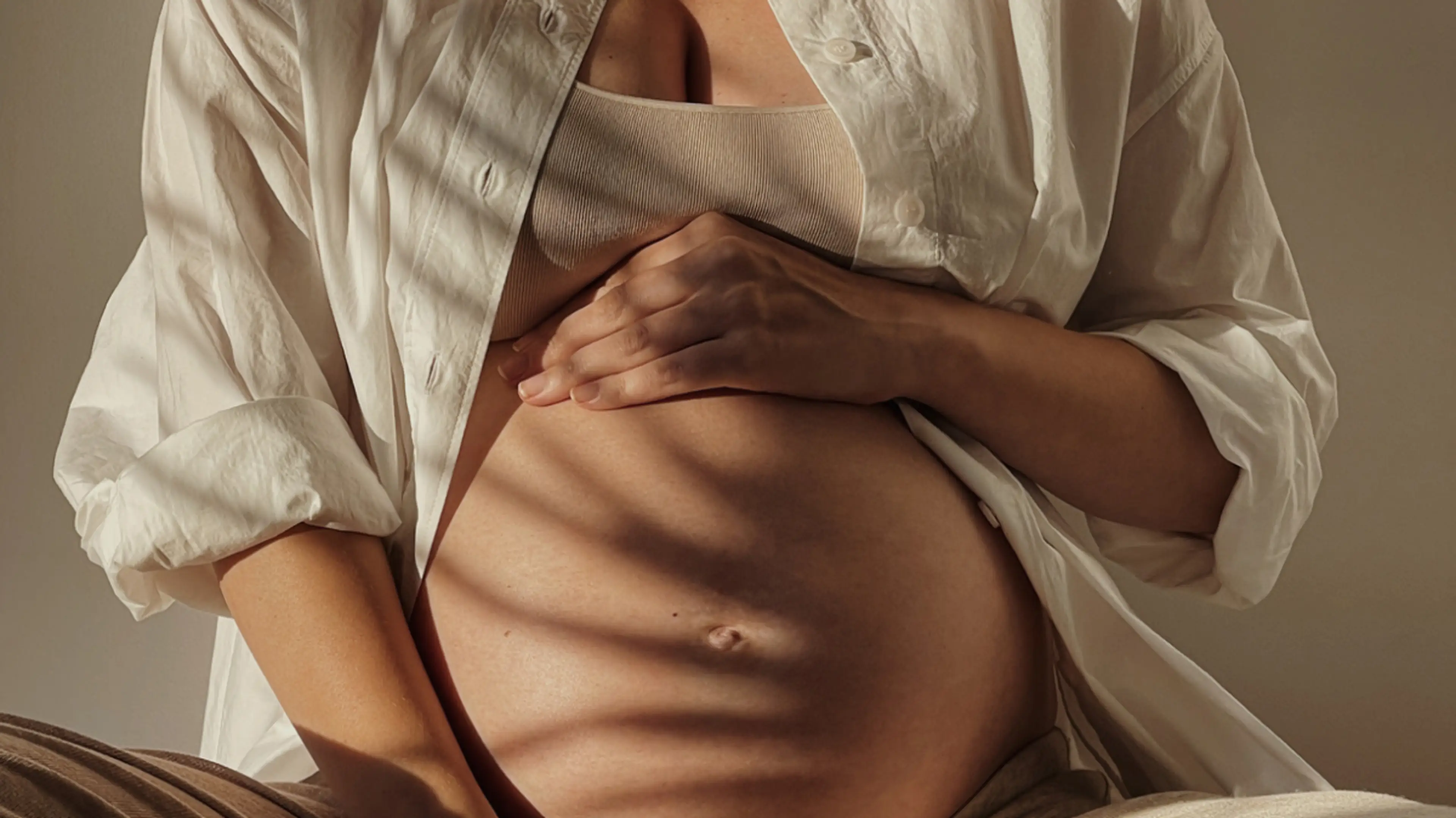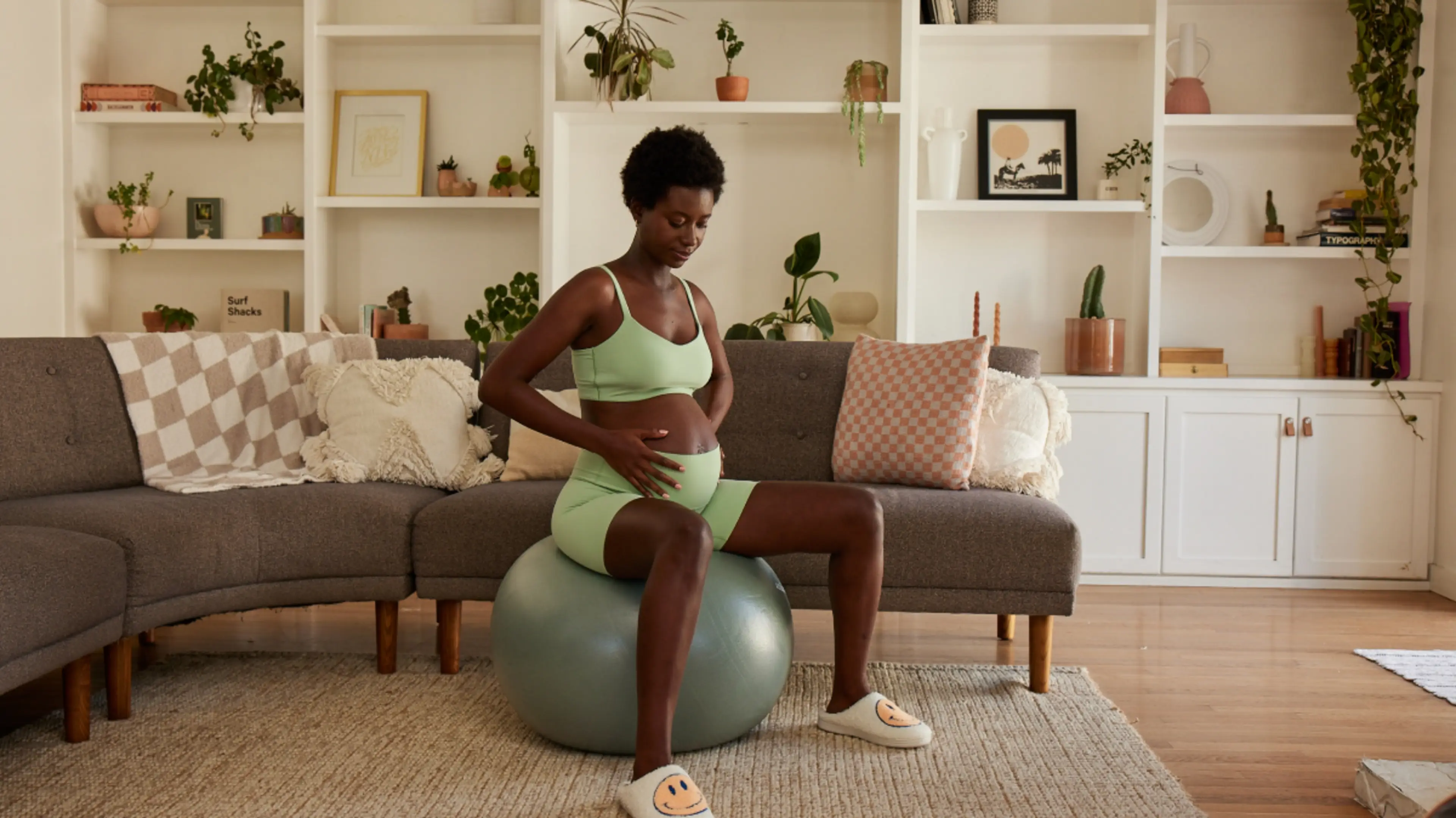TLDR: D-day is almost here, which means it’s time to start getting ready. From comfy clothes and self-care essentials to the things you might not know you need but will be so grateful to have, here’s a list of things that might make your hospital stay better.
When it comes to preparing for your baby’s big arrival, there are a few things that immediately pop into mind as hospital bag must-haves: a cute little coming-home outfit, freshly cleaned blankets, and beanies. But what many expecting moms overlook are the things that will make their own experience more comfortable.
“Don't forget about YOU!,” says Jen LaBracio, Babylist’s Senior Gear Editor. “You spend so much time during pregnancy and the postpartum period thinking about your baby's needs, so be sure to remember your own needs when making your packing list. Include some self-care items, anything to help with postpartum recovery, and some comforts of home.”
The best place to start is with a hospital bag checklist just for mom. While you’re packing, remember: if you forget something, it’s okay. The hospital will have most of the things you need, but having your own products is a luxury that can help make your time there a little more comfortable.
The Complete Hospital Bag Checklist
When it comes to packing your hospital bag, it’s important to think about the comforts of home that you can easily bring with you to the hospital. Think about the things you use every day, like:
Do you have a favorite robe or slippers? Toss them in.
Do you prefer a certain toothpaste? Pack it.
Do you only sleep well on a particular pillow? Consider it a necessity.
While we each have our own things that make us feel cozy and comfortable, here are a few ideas to get you started.
Birth Plan
The first thing you may want to have ready is your birth plan if you decide to have one. A birth plan is a document where you write down your wishes before, during, and after birth. From a specific song you’d like to play during delivery to requests for delayed cord clamping1 , and beyond, it’s a simple and stress-free way for your voice to be heard, even if situations arise on your due date that are more emotional.
Try to keep in mind, though, that going into labor is not scripted and sometimes birth moves quickly. Things may go differently than you imagined, but with your wishes laid out in your birth plan, your medical team can better accommodate your unique wants and needs. Just remember, it’s a plan, and sometimes plans change.
Toiletries
Most people prefer certain brands of toiletries. While the hospital will likely have toothpaste, shampoo, and soap for you, it’s probably not what you normally use.
Here are some toiletries to think about bringing:
Shampoo and conditioner
Body wash or bar soap
Face wash
Toothpaste
Toothbrush
Deodorant
Hairbrush
Lotion
Pro-tip: Buy travel-sized versions of your favorite toiletries so you can toss them into your bag ahead of time and don’t have to worry about forgetting them once the rush to the hospital is on. If your preferred products don’t come in smaller sizes, purchase travel-size containers to have them ready to go.
Hair ties or headbands
Pack a few extra hair ties and headbands in your hospital bag if you have long hair. Before labor, you may want to tie your hair back so it doesn’t bug you. Having your hair tied back may also help you see what you’re doing if you decide to nurse.
Makeup
If you feel your best when you have makeup on, pack it in your hospital bag. You may have visitors along with the constant in and out of nurses and doctors, and you will likely snap some pictures during your hospital stay. If makeup makes you feel good, bring it. If it doesn’t, skip.
Lip balm
Hospital ventilation can be extremely drying, plus, you’re not supposed to drink excess liquids during labor. Pack a hydrating lip balm to keep your lips nice and moisturized.
A robe
Most hospitals will provide a gown to be worn during your stay—you know, the thin sheet-like kind with the open back. Most people say these gowns are way too big or slightly itchy—and, uh, a bit breezy. In general, you’ll want clothes that aren’t restricting, but not everything from your closet will be ideal. A soft robe is a great solution. It’s modest, keeps you covered when you want to be, and provides easy access for breastfeeding as well as skin-to-skin contact with your baby.
Comfortable clothes
Whether you’re recovering from a C-section or a vaginal delivery, you’ll want to live in soft, stretchy clothes for the first few weeks after delivery. Even if the first “real” clothes you put on aren’t until the day you leave, pack a few comfortable maternity outfits for recovery, like loose cotton dresses, nightgowns, loose-fitting cotton pants, and shirts. Stick to clothes that would still fit a six-month pregnant belly, and don’t forget maternity leggings, which can be especially supportive after a C-section.
Going home outfit
Some new parents may want a special going-home outfit. You will likely take pictures of the big day, so wearing an outfit you feel your best in may give you more confidence. A going-home outfit does not have to be anything special. Just make sure to pick something comfortable! (Don’t be surprised that you’re not your pre-pregnancy size right after birth; it takes over six weeks for your uterus to contract to its normal size.)
Slippers
While hospitals are generally cleaned often, you may not want to walk around them in your bare feet—plus, those floors are cold! A pair of cute slippers that are easy to slide on your swollen feet can keep you feeling warm and germ-free. While you’ll be in bed a lot, it’ll be important for you to walk at different points of the experience, like to speed up labor or post-birth, when you’ll be encouraged to start walking by your doctor, whether you have a C-section or give birth vaginally. Not a slipper fan? Bring warm socks with grips on the bottom so you won’t slip. The hospital will have a pair of these socks for you, but like the gowns, they can be awkwardly sized and itchy.
Nursing bras
Whether you’ve decided to breastfeed or not, a nursing bra can be incredibly comfortable in the first few weeks postpartum. If you’re nursing, you’ll probably be wearing a bra 24/7 (yes, even while sleeping), at least for a while, as the feeling of fullness in your breasts may make you want a little extra support.
Nursing bras are more comfortable and convenient than your average bra, as they don’t have underwire but do have flaps over the cups that are fastened with a clasp or button. These flaps can be easily pulled down to feed your baby anywhere, anytime.
Maternity underwear
The hospital will provide you with plenty of ice packs, pads, and mesh underwear—take it all, and we mean it! While you’re probably dreaming of the day you can throw your maternity undies away, don’t get too hasty. Maternity underwear can help make postpartum a little more comfortable as it won’t be tight on your belly.
Also, during the first 24 to 36 days of postpartum, you’ll experience lochia, or postpartum vaginal bleeding2 . Maternity underwear will be your best friend, holding sanitary pads in place, and you won’t care if you get blood on them.
Breastfeeding pillow Learning to breastfeed as a first-time mom can be stressful. Pillows will help you position the baby for nursing, but those flat hospital pillows can be frustrating when you’re just getting into the groove of things. A nursing pillow is specially designed for this and provides better support than what you’ll find at the hospital.
A sleeping pillow
During your stay at the hospital, you’ll be in a strange bed with different sheets, all while your body is recovering and you’re taking care of a new baby. Let’s just say it’s not a hotel, so if there’s anything that could make this space a little more cozy, it’s most likely your pillow. We also wouldn’t judge if you wanted to bring a comfy blanket, though you’ll need to think about getting it to and from the hospital or birthing center.
Towels
A bath towel from home may sound more like a luxury item than an essential, but have you experienced hospital towels? They’re small, scratchy, and smell like, well, a hospital. If you plan to shower at the hospital, which is highly likely, you may want to consider bringing your own.
Entertainment
Between the baby’s napping and nursing, there’s actually a chance that you’ll have some downtime. Bring some entertainment like a pack of cards, music, movies on your tablet, or a book or magazine just in case.
Chargers
You’re probably bringing your cell phone and maybe a tablet with you to the hospital, so don’t forget to bring your chargers. You’ll be taking lots of pictures of your new baby and communicating with family and friends. If you don’t already have an extra-long charger, get one—it’ll be easier to access from your bed.
Portable speaker
Pack a portable speaker if you want to have music going in the delivery or recovery rooms, too. Whether you choose white noise sounds or a playlist you create, it will sound better on your speaker than on your phone.
You can also use the speaker to play meditations while you’re in labor. Make sure to download the Expectful app on your phone beforehand so you can have your favorite meditations cued up.
Snacks and drinks
The hospital will usually provide breakfast, lunch, and dinner, but you will also likely find yourself getting hungry for a snack now and then, especially after giving birth and if you’re breastfeeding. Pack some of your favorite non-perishable snacks in your hospital bag to keep up your strength. These may include bars, nuts, and dried fruit.
And don’t forget a large water bottle with a long, bendy straw—easy for someone else to help you take sips while your hands are full with baby!
When Should You Pack?
It’s usually a good idea to have your hospital bag ready to go in the third trimester, or around 30 to 35 weeks. Babies come when they’re ready, so it’s better to be prepared if they decide to come early and save yourself the last-minute scramble to grab what you need.
La Bracio recommends prioritizing the packing. “Don't wait until the last minute to pack your bag. I know it can feel like a chore, especially considering all the other things that are likely on your to-do list pre-baby, but starting to think through what you'll need—and actually packing your bag—well in advance of your due date can help you feel less overwhelmed.”

